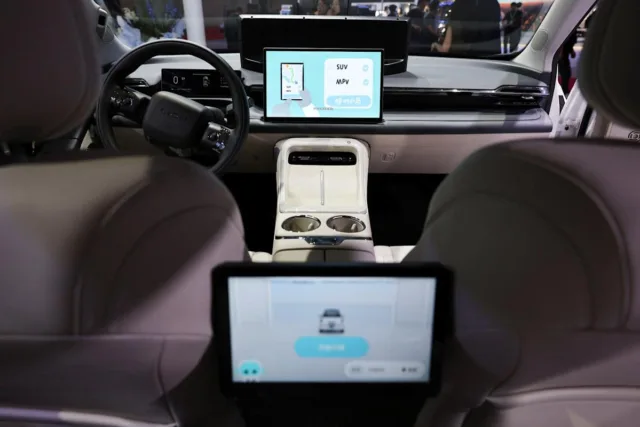Chinese autonomous driving technology firm Pony.ai expects to deploy a fleet of robotaxis in Hong Kong after completing regulatory hurdles, while downplaying potential competition from Tesla.
«We have already set a footprint in Guangzhou and we are eyeing Hong Kong,» chief financial officer Leo Wang said at a media event in the city on Tuesday.
He said Pony.ai needed to work with local authorities and partners to explore the best way forward.
Do you have questions about the biggest topics and trends from around the world? Get the answers with SCMP Knowledge, our new platform of curated content with explainers, FAQs, analyses and infographics brought to you by our award-winning team.
On working with the city’s Transport Department, Wang said Pony.ai has engaged in dialogue already, «but a lot needs to be done».
«This is an effort we’ll be relentlessly working on, but due to the complexity, it’s a bit hard to predict,» he said. «So when we’ll actually have a sizeable fleet on Hong Kong Island, I’m not sure yet. Hopefully soon.»
The optimism of Pony.ai reflects its achievement as the only firm with approval to operate robotaxi services in the mainland’s four most developed cities – Beijing, Shanghai, Guangzhou and Shenzhen – as it pursues growth in the Greater Bay Area and explores potential new markets in Europe.
The interior of a Pony.ai robotaxi on display during the Auto Shanghai show on April 24, 2025. Photo: Reuters alt=The interior of a Pony.ai robotaxi on display during the Auto Shanghai show on April 24, 2025. Photo: Reuters>
The Greater Bay Area is «a unique region with far more intercity travel than other parts of China», Wang said.
On Tuesday, Pony.ai debuted the seventh generation of its robotaxi line-up, including models from a joint venture with Toyota Motor and a collaboration with Chinese carmaker GAC. The Gen 7 models are supposed to be the world’s first to achieve 100 per cent autonomous driving kit «ADK».
Guangzhou-based Pony.ai expected the new models to boost its revenue growth. The Gen 7 models are expected to reduce bill of materials by 70 per cent, lower autonomous driving computational costs by 80 per cent and cut Lidar costs by 68 per cent, the company said.
The company’s key component suppliers include Nvidia and Horizon Robotics. Other platform collaborators include Uber Technologies, Ant Group‘s Alipay, and Alibaba Group Holding‘s Gaode Maps. Alibaba owns the Post.
On Tesla’s plans to compete in the robotaxi space, Pony.ai sees the US firm as «not really competing».
«I think I can be a bit blunt here,» said James Peng, founder and CEO of Pony.ai. «If you look at the three stages of development testing, Tesla is really only at the first stage.»
«They still have a safety operator inside the vehicle and their fleet is about 20 vehicles, so I think they’re really in a trial period,» Peng said.
By comparison, Pony.ai started at the second stage three years ago, according to CFO Wang. He added that there was no competition from Tesla until it deploys a «sizeable fleet that is fully driverless on the road».
This article originally appeared in the South China Morning Post (SCMP), the most authoritative voice reporting on China and Asia for more than a century. For more SCMP stories, please explore the SCMP app or visit the SCMP’s Facebook and Twitter pages. Copyright © 2025 South China Morning Post Publishers Ltd. All rights reserved.
Copyright (c) 2025. South China Morning Post Publishers Ltd. All rights reserved.








